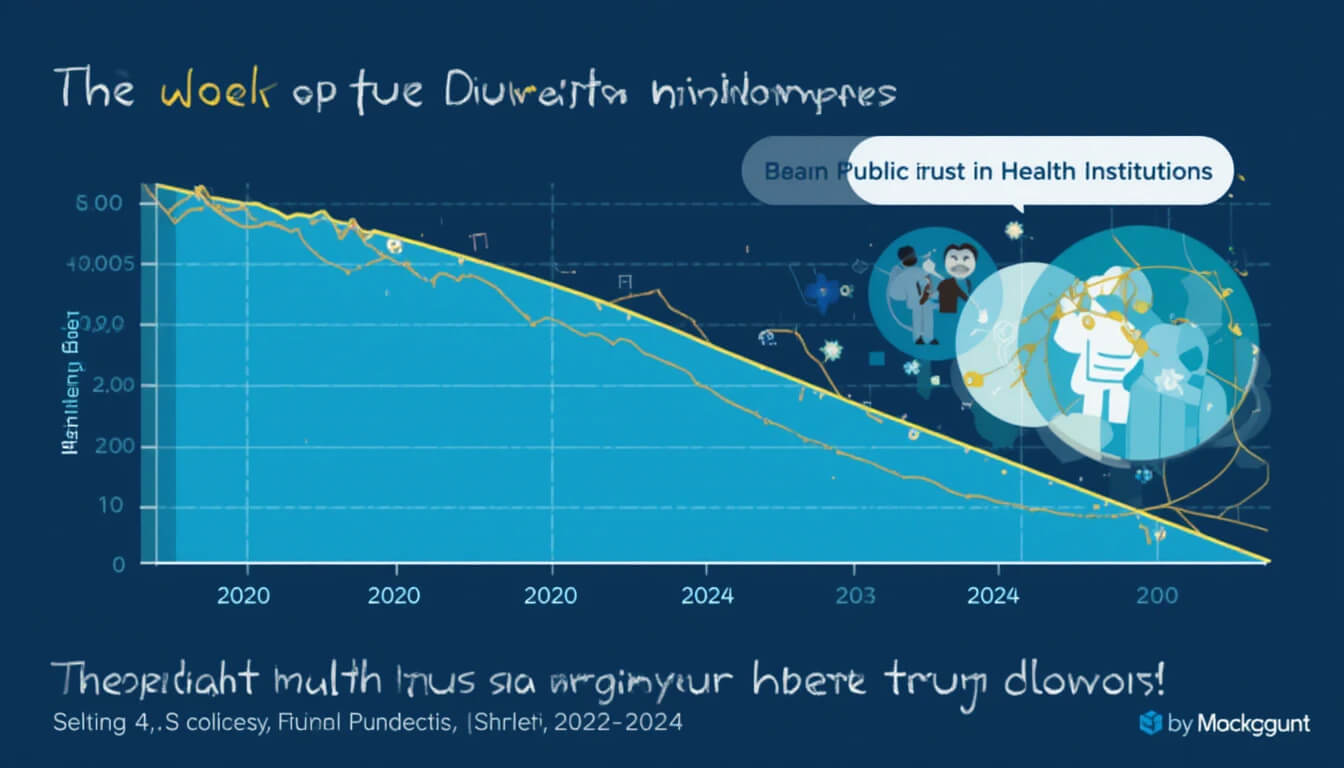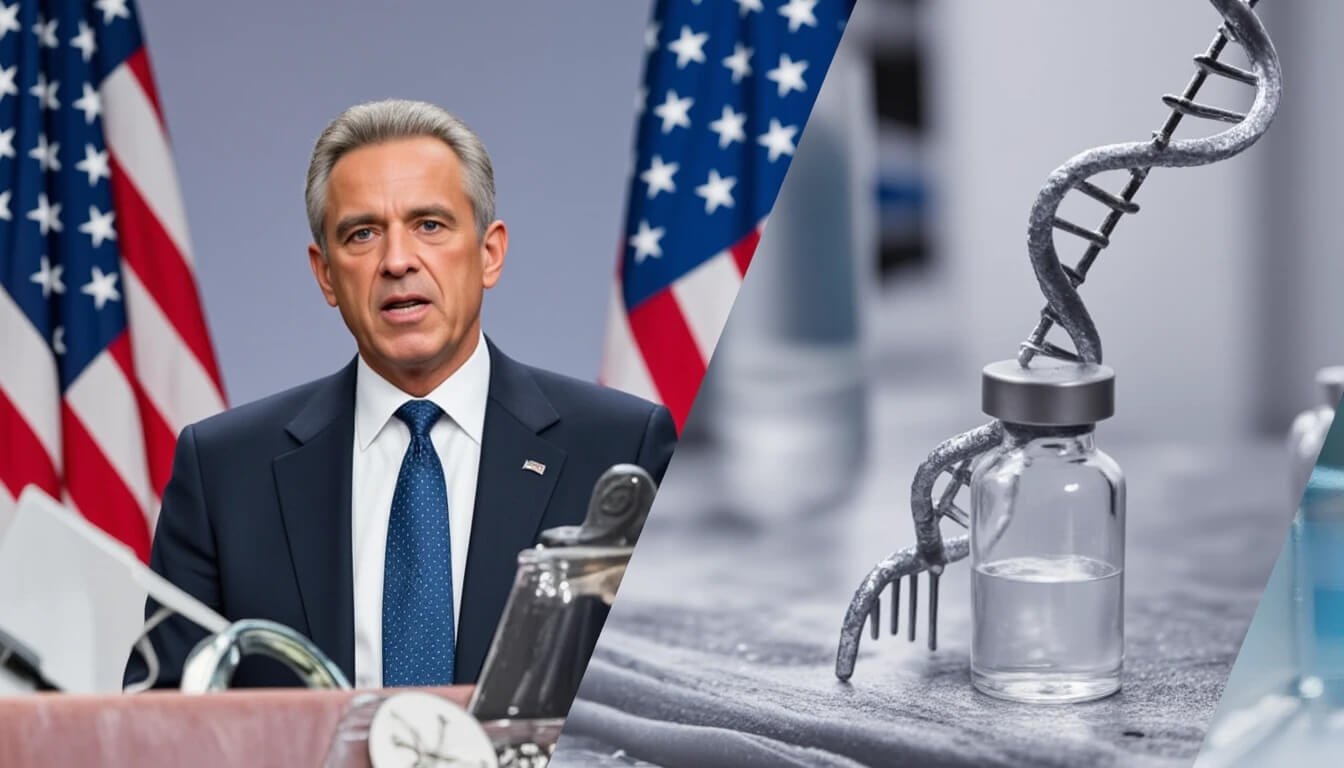As two political heavyweights challenge the foundation of pandemic response, we uncover what their plans could mean for the future of public health in America.
In a political climate where the unthinkable often becomes policy, two of America’s most polarizing figures—Donald Trump and Robert F. Kennedy Jr.—are converging on a startling new target: the COVID-19 vaccine program. It's a move that energizes their supporters and sends shockwaves through the scientific community. But beyond the headlines and rally cries, what’s really going on?
This isn't just about one vaccine; it's a debate that touches on personal freedom, trust in institutions, and the very future of how we handle public health crises. The conversation around covid has shifted from a health emergency to a fierce political battleground, and the potential dismantling of established vaccine policies is the latest front line.
At Care and Prayer, we cut through the noise. In this in-depth analysis, you'll gain a clear understanding of:
-
The specific statements and proposals from Trump and RFK Jr.
-
The core arguments fueling their stance against the COVID vaccine framework.
-
The unified response from the public health and scientific communities.
-
The real-world implications if these plans were to become a reality.
A Shared Target: Trump’s Evolving Stance on the COVID Vaccine
Initially, Donald Trump’s administration championed "Operation Warp Speed," the public-private partnership that accelerated the development of COVID-19 vaccines. He often took credit for their rapid creation, hailing them as a triumph of American ingenuity. However, his rhetoric has shifted dramatically since leaving office.
Appealing to a base that has grown increasingly skeptical of the vaccines and mandates, Trump has vowed not to enforce lockdowns or mandates if re-elected. More pointedly, he has promised to “not give one penny to any school, college, or airline that imposes a COVID vaccine or mask mandate.”
From Promoter to Critic
This evolution reflects a strategic alignment with a powerful segment of the electorate. While he stops short of completely disavowing the vaccine he once promoted, his focus has pivoted to highlighting rare adverse events and framing vaccine policies as an infringement on personal liberty. This calculated ambiguity allows him to maintain credit for the vaccine's development while simultaneously capitalizing on the widespread skepticism surrounding it.The Crusader: RFK Jr.’s Longstanding Vaccine Skepticism
Robert F. Kennedy Jr. is no newcomer to this debate. For years, he has been one of the most prominent voices questioning the safety and efficacy of vaccines, long before covid entered our vocabulary. His platform is built on a deep-seated distrust of pharmaceutical companies and federal health agencies like the CDC and FDA.
RFK Jr.'s position on the COVID vaccine is unequivocal. He argues:
-
Insufficient Testing: The vaccines were rushed through an emergency approval process without adequate long-term safety studies.
-
Unreported Side Effects: He alleges that agencies and media have systematically suppressed data on vaccine injuries.
-
Conflicts of Interest: He claims "Big Pharma" has an improper and corrupting influence on government regulators.
His pledge is to fundamentally overhaul these institutions, investigate their handling of the covid pandemic, and end all mandates, which he views as unconstitutional.

Unpacking the “Why”: The Political and Social Rationale
Why are two major political figures targeting a medical tool credited by many with saving millions of lives? The reasons are a complex mix of ideology, public sentiment, and political opportunism.Tapping into Public Distrust
The pandemic eroded trust. Shifting guidelines, economic shutdowns, and the perception of inconsistent messaging left many feeling confused and mistrustful of official sources. Both Trump and RFK Jr. have effectively channeled this sentiment, positioning themselves as outsiders fighting a corrupt, out-of-touch establishment. The covid vaccine has become a powerful symbol of that establishment.The “Medical Freedom” Movement
The concept of "medical freedom" or "bodily autonomy" has become a potent rallying cry. This movement argues that individuals—not the government or employers—should have the final say over their medical decisions, including vaccinations. This resonates strongly with libertarian and conservative voters who prioritize individual rights over collective public health mandates.A Calculated Political Strategy?
For both candidates, this stance is a clear differentiator. It mobilizes a passionate base of support that feels ignored or censored by the mainstream. By focusing on the potential harms and perceived overreach of covid policies, they appeal to voters who have felt the negative economic and social impacts of the pandemic response most acutely.The Scientific Consensus: A Wall of Opposition
While the political debate rages, the scientific and public health communities remain largely unified. Major global health bodies like the World Health Organization (WHO) and the U.S. Centers for Disease Control and Prevention (CDC) stand firm on the overall safety and efficacy of the approved COVID vaccines.
Their position, backed by extensive global data, is that:
-
The vaccines are highly effective at preventing severe illness, hospitalization, and death from COVID-19.
-
While rare side effects can occur, the benefits of vaccination far outweigh the known risks for the vast majority of the population.
-
Vaccination was a critical tool in reducing strain on healthcare systems and enabling a return to societal normalcy.
Experts warn that dismantling public confidence in vaccines could have devastating consequences, not just for covid, but for routine immunizations against diseases like measles and polio.
What Does “Scrapping” the Vaccine Program Actually Mean?
The rhetoric sounds simple, but the reality would be incredibly complex. "Scrapping" the vaccine isn't like flipping a switch. The potential fallout could include:
-
Impact on Future Research: Halting federal funding for mRNA research could cripple our ability to respond to future pandemics. This technology is being studied for its potential to fight cancer and other diseases.
-
Global Health Implications: The U.S. is a global leader in vaccine development and distribution. A reversal of policy could undermine international health initiatives and strain diplomatic relations.
-
Economic Repercussions: The pharmaceutical and biotech industries are major economic drivers. A government at odds with these sectors could stifle innovation and investment.
2. Is there any scientific evidence to support their safety concerns?
While all vaccines have potential side effects, major health organizations worldwide have concluded through extensive data collection that the benefits of COVID vaccination in preventing severe disease greatly outweigh the risks of rare adverse events like myocarditis.
3. Why did Donald Trump’s view on the vaccine change?
His initial support during "Operation Warp Speed" shifted as he recognized the political power of aligning with a voter base skeptical of mandates and government health advice. His current stance criticizes the policies surrounding the vaccine rather than the vaccine's initial creation.
4. Could they actually dismantle the COVID vaccine programs?
A president has significant power over federal health agencies and their budgets. Through executive orders and control of the FDA, CDC, and NIH, a president could significantly defund, sideline, and restructure programs related to covid and future pandemic preparedness.
5. What are the main arguments against their plans?
The main arguments from the public health community are that these plans would undermine decades of scientific progress, leave the nation vulnerable to future pandemics, erode public trust in all vaccines, and lead to preventable illness and death.
The push by Donald Trump and RFK Jr. to dismantle established COVID vaccine policies represents a watershed moment for American public health. It’s a collision of deeply held beliefs about freedom, science, and the role of government. While supporters see it as a necessary correction against institutional overreach, the vast majority of the scientific community views it as a perilous path that could weaken our defenses against this and future health threats.
Ultimately, the outcome of this debate will not only shape the legacy of the covid pandemic but will also set a precedent for how America confronts the next public health crisis. The stakes couldn't be higher.
What do you think? Is this a necessary stand for medical freedom or a dangerous gamble with public health? Share your thoughts in the comments below!
The team at Care and Prayer is dedicated to providing clear, unbiased, and in-depth analysis of the complex issues shaping our world. We believe in empowering our readers with the information they need to form their own informed opinions.
